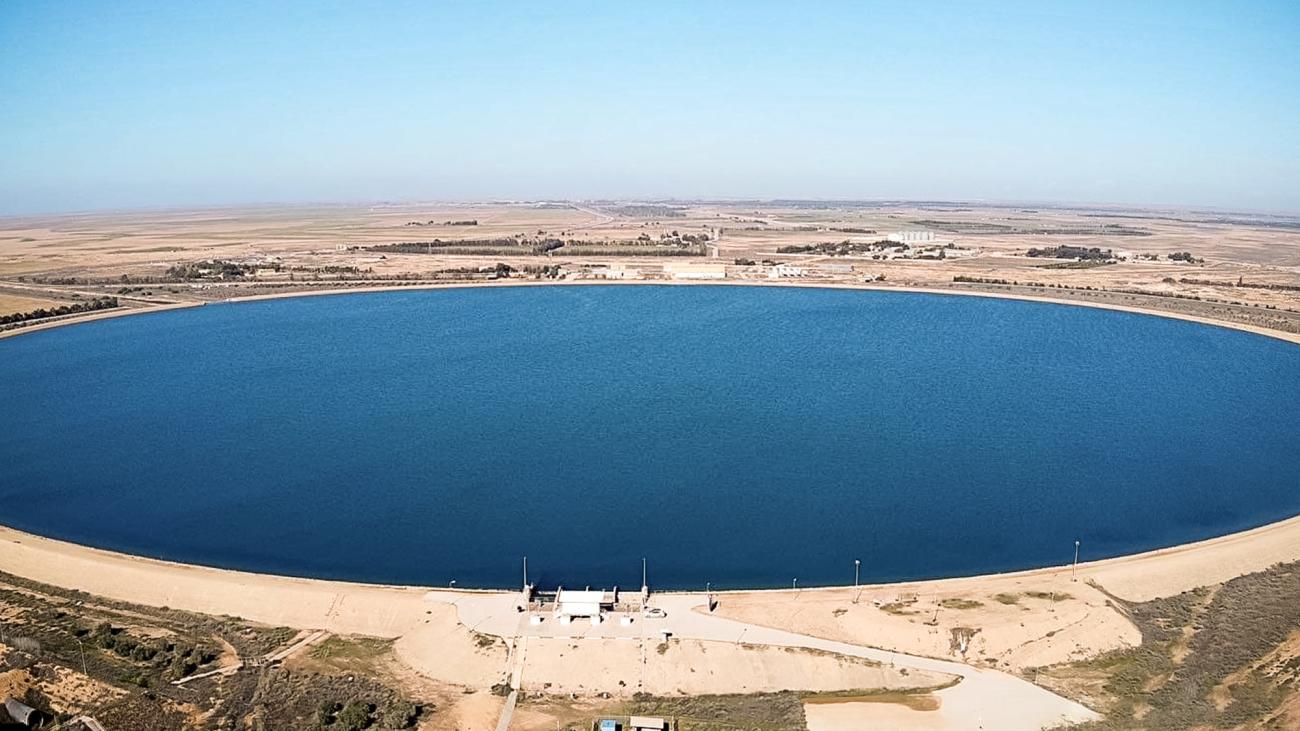Securing access to water for himself and other residents was daily struggle for Yousef, a 45-year-old operator and guard at the emergency water station in Tripoli’s Znata district. Much of the water network and its surrounding infrastructure was damaged during the armed conflict, while the budget allocated for maintaining the system has been limited.
Yousef recalls a day when a huge number of people flocked to the station in panic, asking for water “as if there was none left on Earth. "That moment was unforgettable," he said.
The Znata Water Station used to be a major source of water for the area, producing about 135 m3 or 150,000 liters of water each day. However, after the Man-Made River Project began operating in 1989, the station was neglected, and its capabilities reduced. The wells supplying the station's reservoir were damaged, some were closed, and the reservoir walls eroded and cracked, causing it to leak water.
Attempts have been made in the past by the General Water Company to repair and develop the Znata station, but challenges persisted, notably because of the security situation prevailing at the time.
In response, UNICEF stepped in and launched, in partnership with Libyan authorities, a rehabilitation project aimed at restoring the station and providing the local population with access to clean water. The project involved repairing and renovating the damaged wells, reinforcing the reservoir walls, and installing new pipes for water distribution and solar panel systems.
"We used to have regular power outages at the station,” Yousef explains. “Operating with a generator was not reliable because securing fuel is difficult, and the breakdowns were frequent” he adds, saying that, often, people reacted angrily when asking for water, which the station was unable to provide on a regular basis. “The pumps were out of service, and the tank was not filled. The inability of the station to meet the population's needs exposed the workers to their anger, and sometimes to threats and acts of violence,” he says.
This situation is a distant memory now. The repairs have helped restore the station's daily water production and provided reliable access to clean water for the community. This has also contributed to improving residents’ health and wellbeing, reducing their dependence on unreliable and unsafe sources of water, which had been a major cause of illness and disease.
UNICEF's work in Znata district is part of efforts to support Libya in achieving the Sustainable Development Goals (SDGs), including SDG 6 on ensuring access to clean water and sanitation. The rehabilitation of the Znata Water Station is an example of good cooperation between the United Nations and Libyan authorities that not only repaired infrastructure but affirmed a joint commitment to safeguard human dignity and health.


